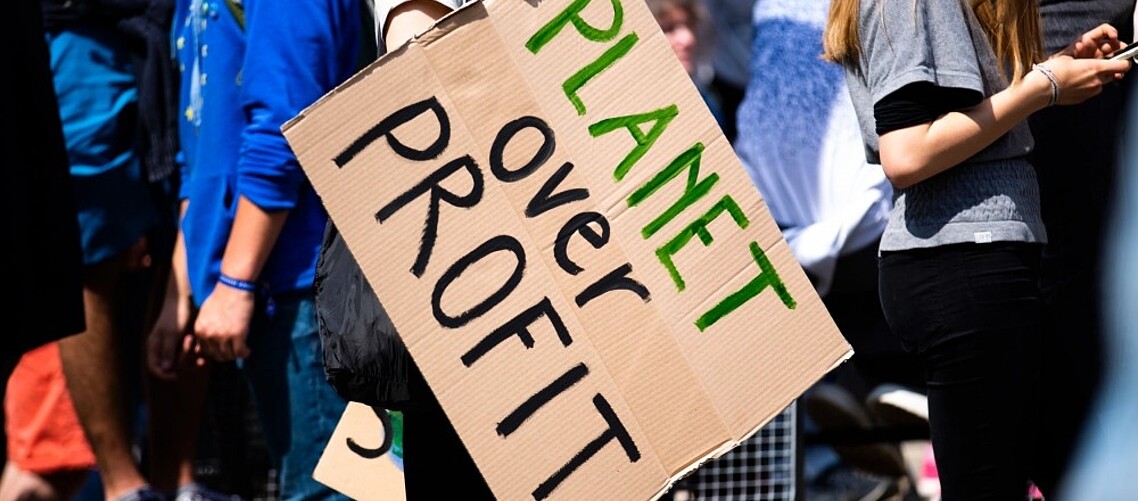Climate change litigation is not a new phenomenon. It used to be exercised primarily in the public sphere, but the trend now is towards the private sphere. In other countries, private actors are also suing polluting companies for the consequences of climate change. These cases concern private actors, but they do not specifically target financial institutions such as banks. However, banks are already held responsible by NGOs for endorsing and committing to sustainability soft law. For example, in 2014 a complaint was filed against Rabobank by Friends of the Earth and Milieudefensie. According to these NGOs, Rabobank had acted in violation of the OECD Guidelines due to its involvement in the palm oil industry. These NGOs also filed a complaint against ING in 2019.
Does soft law pave the way for hard law?
These complaints are based on soft law. However, the first question is whether banks could still endorse sustainability soft law without any consequences. In the financial sector, there are various initiatives supporting sustainable finance and good corporate governance, such as the UN Principles for Responsible Banking, the Principles for Positive Impact Finance and the OECD Guidelines for Multinational Enterprises. Numerous Dutch banks have endorsed one or more of these soft law standards. In principle, these standards cannot produce binding legal effects. However, the Dutch courts have shown in a variety of case law that they do take into account soft law instruments to fill in open norms, such as reasonableness and fairness (article 6:248 Dutch Civil Code, “DCC”) and the standard of due care (article 6:162 DCC). In the Milieudefensie v. Shell case, the Dutch court took note of the fact that Shell voluntarily endorsed the Paris Agreement. Two Dutch Advocate Generals also pointed out in their opinion to the Urgenda v. the Netherlands case that soft law often paves the way for hard law: initially non-binding declarations later turn into enforceable obligations. Climate change is mentioned as an example of a field of law in which soft law has undergone such a development. Banks should therefore carefully consider whether they can meet the obligations when endorsing a soft law instrument.
Another field in which climate change considerations in relation to liability could emerge is the individual relation between banks and their non-professional clients. New European sustainable finance regulations – more specifically the Sustainable Finance Disclosure Regulation (Regulation (EU) 2019/2088 and the recently adopted changes to Delegated Act 2017/565 supplementing MiFID II, Directive (EU) 2014/65 – give new requirements in assessing client suitability and impose information duties on banks and other organisations. These public law obligations concretise the bank’s duty of care under public law. However, banks also have a duty of care under civil law, which can be extracted from case law of the Dutch Supreme Court.
Sustainability as a civil duty of care
The rationale of this duty of care is to protect the client's financial interests against their own carelessness and lack of insight. Consequently, the duty of care has a strong financial dimension. The question is therefore whether sustainability, which is not necessarily aimed at protecting the client's financial interests, is a factor that should be taken into account by the bank on the basis of the civil duty of care. There are aspects that show there is indeed room to consider such factors.
Firstly, the Supreme Court often uses the obligations of public financial law as a guideline for the interpretation of the civil duty of care. Secondly, sustainability and climate risks do have an indirect financial impact, for both the client and the bank, as well as the financial system as a whole. For example, stranded assets due to climate change are a real risk. If one looks at the current developments in case law, it can be seen that a duty of care and the effects of and measures against climate change already go hand in hand. It is therefore a real possibility that the financial sector – with banks at the forefront as institutions with social impact – will be forced to take into account sustainability considerations when advising individual clients.
Better to intervene in advance
The overarching question is whether liability is a desirable means of exerting pressure to let banks comply with sustainability obligations. First of all, I do not see the advantages of banks paying large damages. The consequences of climate change are irreversible, so it is necessary to intervene in advance. Liability law can play a useful role in relation to banks' sustainability obligations, but this requires a change of perspective: from the classic idea that liability law only serves to compensate for damage to the new idea that liability law actually serves to prevent damage. In recent decades, liability law has undergone a tremendous transition and has had to adapt to new challenges and risks. This shows that liability law is stretchable. In my view, climate change is such a new risk and a risk that is suitable for obligations to prevent damage. Current law provides sufficient basis for this in article 3:296 of the DCC. Of course, the civil judge has an important role to play here.The judge is the one who must fit the new risks into the existing frameworks and put on the proverbial preventive glasses. In recent years, however, the courts have repeatedly shown that they are able to do this, and will do so if necessary.
To conclude, there are several bases on which banks could be held liable for not complying with their sustainability obligations. NGO Milieudefensie has proven that it will not rest, and the Milieudefensie v. Shell case showed that courts are able to act as trendsetters. Could banks be next? To be continued!
